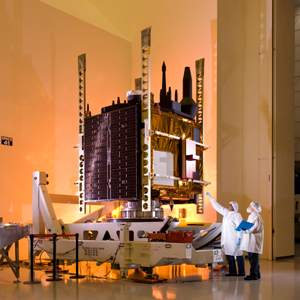Boeing has completed prelaunch testing for the first of 12 next-generation Global Positioning System (GPS) IIF navigation spacecraft.
The satellite – dubbed “GPS IIF-1” – is scheduled to launch on May 20 aboard a United Launch Alliance Delta IV rocket from Cape Canaveral Air Force Station in Florida.

According to Boeing spokesperson Craig Cooning, the next-gen GPS will provide improved accuracy with an advanced atomic clock, a more jam-resistant military signal, an upgraded civil signal and a longer design life.
“GPS is a space-based, worldwide navigation system providing users with highly accurate, three-dimensional position, navigation and timing information 24 hours a day in all weather conditions,” explained Cooning.
“The 12 GPS IIF satellites feature stronger and more precise signals that will enhance the services that support US warfighters, their allies and civilian GPS users around the world.”
Air Force Col. David Madden, GPS Wing Commander, expressed similar sentiments.
“GPS is used by nearly a billion people worldwide for everything from farming and aviation to public safety, disaster relief and recreation, not to mention its military purpose of providing precision navigation and timing to combat forces,” said Madden.
“GPS IIF will increase the signal power, precision and capacity of the system and form the core of the GPS constellation for years to come.”






